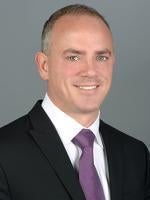Plans announced on May 15 by the FCC to empower voice service providers to offer more aggressive call-blocking programs could create significant problems for creditors and debt collectors. In addition to allowing providers to block unwanted calls by default, the FCC plans to allow providers to offer opt-in blocking in which a consumer can elect to block calls from any numbers that are not on the consumer’s own contact list. Such opt-in blocking could result in the blocking of legitimate communication attempts, such as collection calls from creditors or debt collectors.
The FCC’s press release and fact sheet indicate that FCC Chairman Pai has circulated a declaratory ruling that would allow voice service providers to start offering default call-blocking programs. While many providers currently offer blocking programs, they do so only on an opt-in basis. The default programs can be “based on any reasonable analytics designed to identify unwanted calls and will have flexibility on how to dispose of those calls, such as sending straight to voicemail, alerting the consumer of a robocall, or blocking the call altogether.” The FCC ruling would allow consumers to opt out of call blocking and would provide that call blocking should not interfere with emergency communications.
In addition to allowing default blocking, the declaratory ruling would allow providers to offer opt-in blocking tools based on consumers’ contact lists or other “white list” options. According to the fact sheet, the ruling “makes clear that carriers can permit consumers to use their own contact lists as a ‘white list,’ blocking calls not included on that list. The white list could be updated automatically as consumers add and remove contacts from their smartphones.”
According to the FCC’s press release, the draft declaratory ruling is accompanied by a draft notice of proposed rulemaking that would provide a safe harbor for providers that implement network-wide blocking of calls that fail caller authentication under the “SHAKEN/STIR framework” once it is implemented. SHAKEN is an acronym for “Signature-based Handling of Asserted Information Using toKENS” and STIR is an acronym for the “Secure Telephone Identify Revisited” standards. Under the framework, “calls traveling through interconnected phone networks would have their caller ID ‘signed’ as legitimate by originating carriers and validated by other carriers before reaching consumers.” In other words, “SHAKEN/STIR digitally validates the handoff of phone calls passing through the complex web of networks, allowing the phone company of the consumer receiving the call the verify that a call is from the person making it.”
Last year, Chairman Pai called on the nation’s largest voice service providers to adopt a robust call authentication system by the end of 2019 and indicated that he would consider regulatory intervention if necessary. On May 13, the FCC issued a public notice announcing that Chairman Pai will convene a summit focused on the industry’s implementation of SHAKEN/STIR on July 11, 2019 in Washington, D.C. The notice states that the summit “will showcase the progress that major providers have made toward reaching [the goal of deploying the SHAKEN/STIR framework in 2019] and provide an opportunity to identify any challenges to implementation and how best to overcome them.”




 />i
/>i
